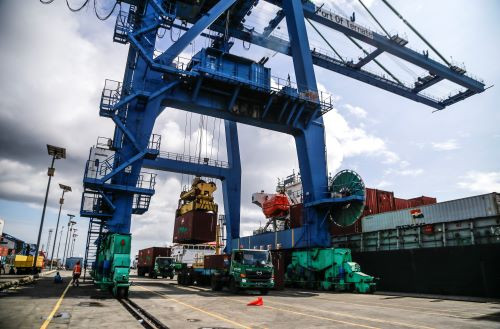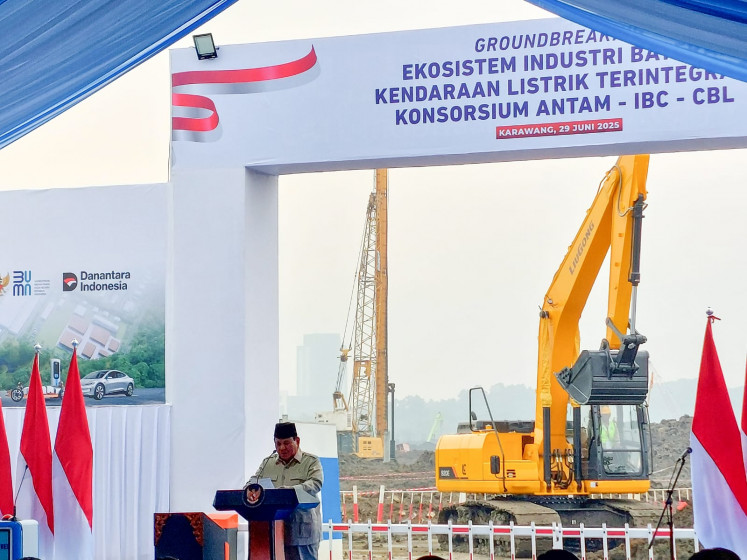Popular Reads
Top Results
Can't find what you're looking for?
View all search resultsPopular Reads
Top Results
Can't find what you're looking for?
View all search resultsDiscourse: Hopes fall on ASEAN to shore up commitment to Myanmar peace, expert says
The Jakarta Post’s Dian Septiari and Tri Indah Oktavianti spoke with Evan Laksmana, senior researcher at the Centre for Strategic and International Studies (CSIS) in Jakarta, to capture the tone of discussions ahead of the crucial ASEAN Summit at the weekend.
Change text size
Gift Premium Articles
to Anyone
 Evan A. Laksmana, senior researcher at the Centre For Strategic and International Studies (Courtesy of//CSIS Indonesia)
Evan A. Laksmana, senior researcher at the Centre For Strategic and International Studies (Courtesy of//CSIS Indonesia)
A
head of the much-anticipated ASEAN Summit, where the region’s leaders are expected to discuss the political and humanitarian crisis in Myanmar, opinions are split between what the bloc should and can collectively do. The Jakarta Post’s Dian Septiari and Tri Indah Oktavianti spoke with Evan Laksmana, senior researcher at the Centre for Strategic and International Studies (CSIS) in Jakarta, to capture the tone of discussions ahead of the crucial meeting. The following are excerpts from the interview:
Question: What are your views about the prospects of the upcoming ASEAN summit on Myanmar? What can realistically be achieved?
Answer: So, right now, what we’ve had on the table for the last several weeks is Indonesia's proposal to implement and a commitment to [negotiate] a humanitarian pause that can end violence right now. Only after that can we deliver humanitarian aid facilitated by ASEAN, in particular through the AHA Center. Hopefully, we can then have enough space to allow ASEAN to facilitate a Myanmar-led and Myanmar-owned dialog process.
That's the most ideal outcome; that there is a commitment from an ASEAN-led mechanism to help address the crisis and a commitment to a framework to end the violence, deliver humanitarian aid, as well as potentially restart a dialog among all the stakeholders in Myanmar. I think that would be the best-case scenario.
But if your question is, what is likely to happen, realistically, I’m afraid that would be quite difficult [to answer] because, at this point, it's not clear to what extent Indonesia’s ideas have been discussed, conveyed and negotiated over the last several weeks. We hope that we can get a commitment.
The least ideal outcome is if the senior general of Myanmar comes [to the meeting] but there is no commitment; that he only comes, listens to the concerns expressed by other ASEAN leaders and representatives, and then conveys his plans and we all go home.
That wouldn’t be ideal because a meeting that only summarizes the expressed concerns or wishes is not sufficient; there has to be a commitment to engaging in a mechanism and a process to do something, at the very least. Without those commitments, I’m afraid it will be difficult to call the special leaders’ meeting a success.














